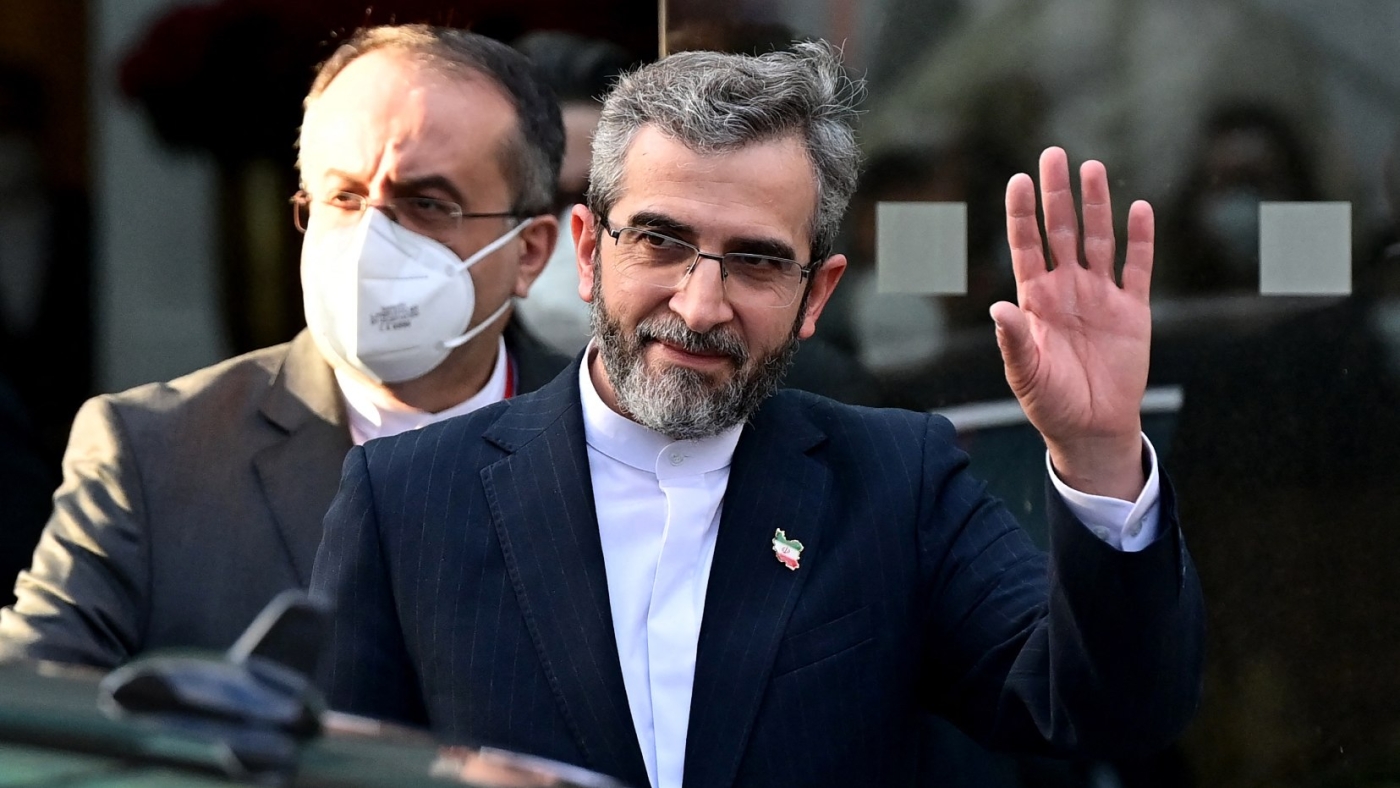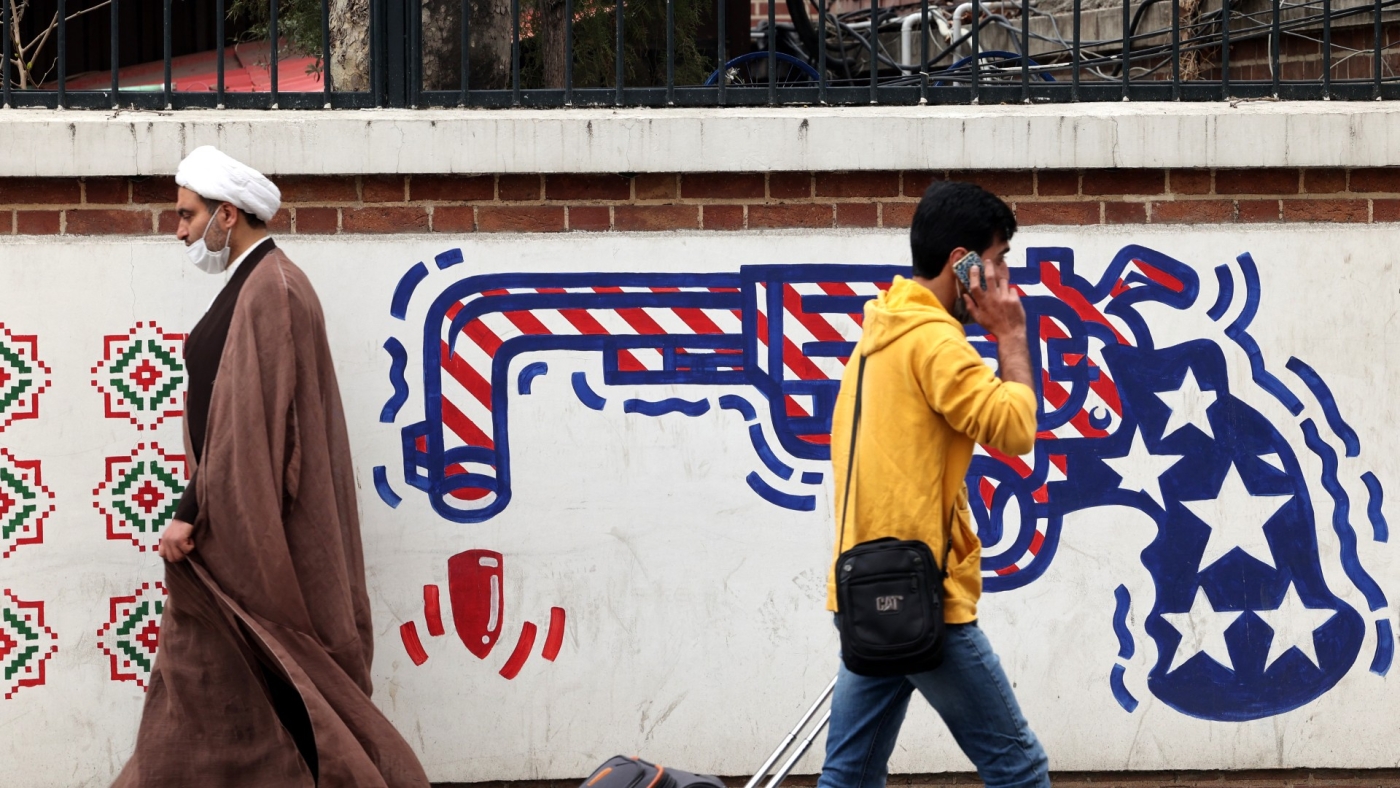
Tehran Says It Has Started a
‘Careful Review’ of US Response
Dave DeCamp / AntiWar.com
(August 224, 2022) — Iran said on Wednesday that it had received the US response to an EU proposal aimed at reviving the nuclear deal, known as the JCPOA. Iranian Foreign Ministry spokesman Nasser Kanaani said Tehran has begun a “careful review” of the US response.
“This evening Iran received the US response through the European Union. The careful review of the response has started in Tehran,” Kanaani said. “Iran will share its view with the EU, as the coordinator of the nuclear talks, upon completion of Tehran’s review.”
The State Department confirmed that the US has responded to the proposal, which came after Iran gave its response. “As you know, we received Iran’s comments on the EU’s proposed final text through the EU. Our review of those comments has now concluded. We have responded to the EU today,” State Department spokesman Ned Price said.
Details of the US response aren’t yet known, but US officials have signaled there’s a chance the JCPOA could be revived under the EU proposal. A US official told Reuters on Monday that a deal is closer because Tehran made concessions by dropping two of its major demands.
The concessions include dropping the demand for the US to lift the designation of Iran’s Islamic Revolutionary Guard Corps (IRGC) as a foreign terrorist organization. Tehran also reportedly dropped a demand to have the International Atomic Energy Agency (IAEA) conclude its investigation into uranium traces at Iranian nuclear sites.
In another sign that the JCPOA could be revived, EU foreign policy chief Josep Borrel said this week that Iran’s response to the EU proposal was “reasonable.” Borrel also said that other countries involved in the JCPOA negotiations agree with the EU proposal to restore the deal.
Iran has been clear from the beginning of the Biden administration that it would bring its nuclear program within the strict limits of the JCPOA if the US lifted all Trump-era sanctions. But President Biden has refused to do so, making the negotiations necessary as the two sides needed to agree on what sanctions will be lifted.

Nuclear Deal Closer after Iran Drops Key Demands
Iran has conceded on some of its key demands in talks to revive the 2015 nuclear deal, bringing the prospect of an agreement closer, according to a senior US official.
Earlier this month, the EU sent Tehran its “final” proposal to restore the pact, under which Tehran curbed its nuclear programme in return for economic sanctions relief.
“[Iran] came back last week and basically dropped the main hang-ups to a deal,” the official, speaking on condition of anonymity, told Reuters on Monday.
“We think they have finally crossed the Rubicon and moved toward possibly getting back into the deal on terms that President Biden can accept.
“If we are closer today, it’s because Iran has moved. They conceded on issues that they have been holding onto from the beginning.”
The official said that Iran had dropped demands on lifting the foreign terrorist organisation designation of the Iran Revolutionary Guard Corps (IRGC) and on the International Atomic Energy Agency (IAEA) closing investigations into unexplained traces of uranium.
“Iran wants guarantees that the IAEA would close all of them. We said we would never accept that,” the official said.
In 2018, then-President Donald Trump reneged on the nuclear agreement reached by his predecessor Barack Obama, calling it too soft on Iran. The Trump administration reimposed harsh sanctions, spurring Tehran to breach its limits on uranium enrichment.
Washington Denies ‘Procrastinating’
On Monday, Iran accused the US of “procrastinating” and the EU of “inaction” in efforts to revive the deal.
US State Department spokesperson Ned Price denied the claims, stating: “The notion that we have delayed this negotiation in any way is just not true.”
Price told reporters that Iran’s concessions had brought a deal “closer now than it was two weeks ago”, but that the outcome of negotiations were still uncertain due to “gaps” remaining.
The EU’s foreign policy chief Josep Borell said on Tuesday that most countries involved in the nuclear discussions agreed with the EU proposal, adding that Tehran’s response to the text was “reasonable”.
“Most of them agree, but I still don’t have the answer from the United States, who I understand have to discuss it, and we expect during this week to receive an answer,” he said.
A second official told Reuters that if the full deal were to be implemented, the IAEA could resume comprehensive inspections to detect any Iranian efforts to covertly pursue a nuclear weapon.
They added that Tehran would not be allowed to have the 20 percent and 60 percent enriched uranium that it is currently stockpiling.
“Strict limits on Iranian enrichment would mean that even if Iran left the deal to pursue a nuclear weapon, it would take at least six months to do so,” the official said.
Posted in accordance with Title 17, Section 107, US Code, for noncommercial, educational purposes.
